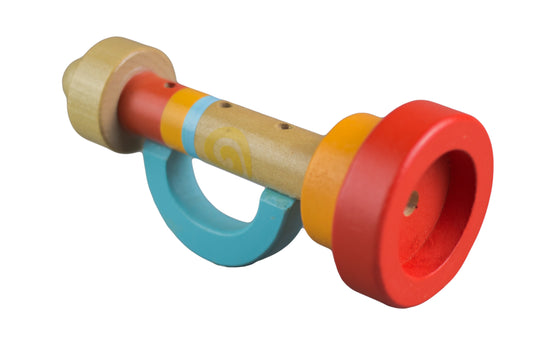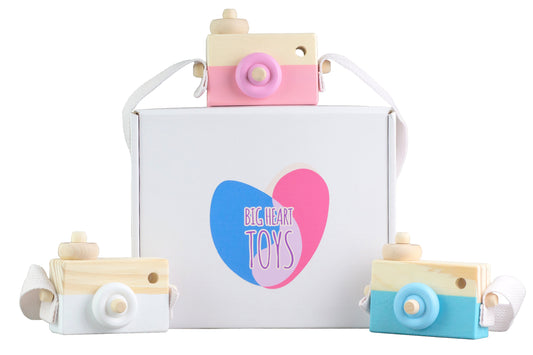There are 12 skills referred to as executive functioning skills that are deemed crucial for success in day-to-day life. These skills are cognitive processes that allow individuals to function independently. Understanding and practicing these skills can lead to enhanced social skills and relationships, higher academic achievement, and emotional stability to name a few.
For children with autism, developing these twelve essential skills is often more challenging. Big Heart Toys is a dedicated partner in raising children with autism, providing toys, books, and blog posts tailored to help these little ones thrive. By focusing on these skills early in life, Big Heart Toys provides tools to help build this foundation and work on cognitive and physical development.
What Is Executive Functioning?
Executive functioning refers to a set of cognitive processes that allow someone to set goals and self-regulate their emotions. These skills include things such as planning, organization, time management, working memory, decision-making, and emotional regulation. Executive functioning enables individuals to initiate and complete tasks, solve problems, adapt to new situations, and control impulses.
In everyday life, executive functioning plays a huge role. These can be things like managing daily schedules and staying focused, or making decisions and interacting socially. These skills are essential for success in academics, the workplace, and personal relationships.
For children with autism, executive functioning challenges are common. Difficulties in areas such as flexible thinking, social initiation, and managing emotions can impact their ability to perform daily tasks and engage in social situations.
Tailored interventions and support, like the tools and toys provided by Big Heart Toys, can help children with autism develop and strengthen these executive functioning skills. By addressing these challenges early on, individuals with autism can enhance their overall functioning and improve their quality of life.
What Are the 12 Executive Functioning Skills?
The 12 executive functioning skills are rooted in the prefrontal cortex of the brain. Executive function impacts every aspect of day-to-day life, including decision-making, time management, and planning, yet it is something that human beings are not born with. These skills have to be introduced and practiced consistently over time.
1. Inhibition
Inhibition refers to the ability to stop one's own behavior at the appropriate time. It involves restraining impulses and resisting distractions, allowing individuals to maintain focus and control over their actions.
This means a child may recognize that their actions are inappropriate and know when to stop them. This can be exceptionally challenging in a heightened emotional state and involves a great deal of self-control.
2. Shift
Shifting involves the capacity to transition smoothly from one situation or task to another, demonstrating flexibility in thinking. This skill enables adaptability and the ability to navigate changes seamlessly. For children, this can mean transitioning between activities in school, or at home when it’s time for dinner or bed.
3. Emotional Control
Emotional control deals with the managing of one's emotions effectively to accomplish goals, complete tasks, or regulate and direct behavior. This skill is crucial for maintaining composure and making rational decisions in different situations. Even when emotions become overwhelming, emotional control involves the ability to calm down or cope.
4. Initiation
Initiation refers to the capability to take on a task or activity and independently generate ideas, responses, or problem-solving strategies. This skill is essential for overcoming the hurdle of getting started and taking the first steps in a task or project. Many children require help initiating tasks whether it be school work or play at home, but with time, they can learn to initiate themselves.
5. Working Memory
Working memory involves the ability to hold information in mind temporarily for the purpose of completing a task. It allows individuals to manipulate and recall information, assisting in tasks that require multi-step processes. This is related to short-term memory but involves doing something with the information.
6. Planning/Organization
Planning and organization are the ability to manage current and future-oriented task demands. This includes creating an approach to tasks, setting goals, and establishing steps to achieve those goals, ensuring efficient and effective execution. Being able to think ahead and plan for things that aren’t occurring at that exact moment requires skills to properly plan and organize.
7. Organization of Materials
Organization of materials is the ability to create order within work, play, and storage spaces. This skill enables people to maintain a structured environment, find necessary items easily, and enhance overall efficiency in daily activities. This can be something as simple as organizing kitchen cabinets or putting toys in a specific place that makes sense in a playroom closet.
8. Self-Monitoring
Self-monitoring involves the ability to observe and evaluate one's own performance, measuring it against a standard of what is expected. This skill allows individuals to assess progress, identify areas of improvement, and make necessary adjustments to enhance overall effectiveness. Self-monitoring is important for growth and personal development.
9. Task Monitoring
Similarly to self-monitoring, task monitoring is the capacity to oversee how well a specific task is being performed. This skill enables individuals to stay on track, ensuring that the task is executed efficiently and meets the required standards. It is a type of self-monitoring that specifically focuses on one task at hand. While self-monitoring focuses on behaviors and actions, task monitoring focuses on tasks and responsibilities.
10. Cognitive Flexibility
This is the ability to change cognitive perspectives in order to adapt to unexpected or unanticipated events. This skill empowers individuals to shift perspectives, consider alternative approaches, and handle challenges with adaptability and creativity. This can be particularly challenging for people with autism, as routine and predictability are particularly important in their world.
11. Goal-Directed Persistence
Goal-directed persistence is the ability to set a goal, follow through to its completion, and remain focused without being easily swayed or distracted by other interests. This skill is crucial for achieving long-term objectives and overcoming obstacles along the way. It teaches a child to never give up, and that goals require time and effort to accomplish.
12. Metacognition
Metacognition is the ability to take a step back and think about one's own thinking. It involves self-awareness and reflection, allowing individuals to analyze their thoughts, problem-solving strategies, and decision-making processes, contributing to continuous improvement and effective self-regulation. This improves a child’s overall cognitive skills and involves a level of self-awareness internally.
How Can Big Heart Toys Help Children With Autism Develop These Skills?
As children engage in activities that challenge and develop executive functioning, the neural connections in the prefrontal cortex strengthen. As parents and caregivers, we need to recognize the importance of developing these skills, emphasizing the role of intentional introduction and continuous practice to create a well-rounded and competent executive function.
Big Heart Toys can assist children with autism in developing essential skills through purposefully designed toys and books for children with autism, as well as resources that target specific aspects of executive functioning. By offering engaging activities and playsets, Big Heart Toys provides a supportive environment for children to practice and enhance skills such as initiation, working memory, organization, and cognitive flexibility.
Big Heart Toys offers specific sensory toys catering to your child’s developmental needs, allowing you to use these items in behavior modeling and teach them specific skills. Your role here is important — playing with your child and taking the time to intentionally introduce these skills will make a long term impact.
For example, the 3D Building Blocks offer abstract ways for children to create three-dimensional shapes. In order to effectively do this, you can talk through planning out a structure, setting goals, and completing tasks necessary to follow through with those goals.
The Bottom Line
Recognizing the significance of executive functioning skills is vital for the development of children, especially those with autism, as these skills lead to success in various aspects of life. To support children in cultivating these abilities, it's so important to provide purposeful tools and activities that cater to their unique needs.
For support is guiding and teaching your child with autism, explore the products offered by Big Heart Toys, designed specifically for behavior modeling and skill development in children with autism. Whether focusing on initiation, working memory, organization, cognitive flexibility, or other executive functioning skills, Big Heart Toys offers a range of engaging and effective resources.
Sources:
Executive Function & Self-Regulation | Harvard
Setting Goals and Tracking Improvements | Marcus Autism Center
What Is Working Memory? | Child Mind Institute
Helping Kids Who Struggle With Executive Functions | ChildMind
Neuroanatomy, Prefrontal Cortex - StatPearls | NCBI Bookshelf
Why Children with Autism Need Routines at Home | Therapeutic Pathways






